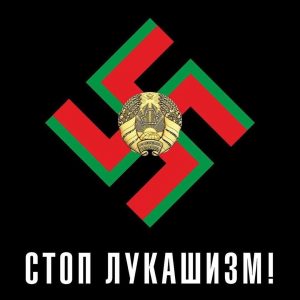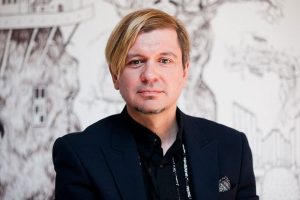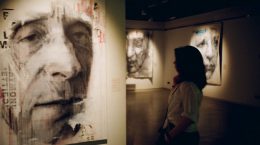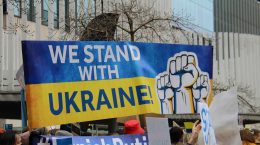Thirty years of independence, albeit partly formal, have brought our country quite a few famous names – musicians, writers, artists, scientists and artists who have changed our country and our attitude to Belarusian culture and art. We discovered someone anew, delighted not only us but the whole world. And even if it is impossible to mention everyone in our category – we try to stay within the 30 names. But sooner or later, every person will be in the history of New Belarus.
Most of the people or creative teams from our list were under repression. Moreover, the authorities began to put pressure on many from the beginning of the formation of the dictatorial regime. According to the latest data, there are more than 30 names of cultural activists among official political prisoners. More than a hundred left their homeland, fearing for their lives and the lives of their loved ones. Unfortunately, this is only the beginning.
The unprecedented pressure of the illegitimate government on those who preserve, revive, create an incredible layer called “Belarusian culture” with their work is a clear sign of the genocide of the entire people. The destruction of culture is what the fascists started with. And what the usurper does not hesitate to implement.
We will be grateful to every reader who will leave comments on our social networks with the names of those cultural and art figures whom we have not included in our small list but about whom, in your opinion, everyone should know.
Sviatlana Alexievich is a writer, journalist, the first Belarusian winner of the Nobel Prize in Literature. At the moment, for political reasons, he is outside of Belarus. After the detention of Maria Kolesnikova, European diplomats gathered at the writer’s house to prevent her arrest. Probably, the exceptionally close attention of diplomats saved Svetlana Alekseevich from arrest.
 Vladimir Tsesler is a Soviet and Belarusian artist and designer. Many consider him the founder of a specific direction – the protest art of Belarus in 2020. For political reasons, he lives outside of Belarus. Tsesler’s works reflect the entire history of the protests of Belarus, under sometimes assumed simplicity symbols always hide that now understand not only Belarusians but also the whole world.
Vladimir Tsesler is a Soviet and Belarusian artist and designer. Many consider him the founder of a specific direction – the protest art of Belarus in 2020. For political reasons, he lives outside of Belarus. Tsesler’s works reflect the entire history of the protests of Belarus, under sometimes assumed simplicity symbols always hide that now understand not only Belarusians but also the whole world.
Nikita Monich is a tour guide, a former employee of the National Art Museum. He was fired for publishing a poem in defence of the painting “Eve” by Chaim Soutine, confiscated as part of the case against Viktor Babariko. At the moment, Nikita is one of the most popular lecturers in the field of art history.
 Zoya Belokhvostik is a representative of the famous Belarusian theatre dynasty. After her dismissal from the Kupala Theater, she had to leave a job at the Belarusian State Academy of Arts. Zoya Belokhvostik was not accepted for the position of artistic director of the acting course. When asked about the reasons for this decision, the answer “you understand”, which is popular among the heads of various structures, was received.
Zoya Belokhvostik is a representative of the famous Belarusian theatre dynasty. After her dismissal from the Kupala Theater, she had to leave a job at the Belarusian State Academy of Arts. Zoya Belokhvostik was not accepted for the position of artistic director of the acting course. When asked about the reasons for this decision, the answer “you understand”, which is popular among the heads of various structures, was received.
Denis Dudinsky and Ekaterina Raetskaya are the former permanent hosts of the “Slavyansky Bazar”. Denis Dudinsky also supported the protests in July 2020 and condemned the actions of the security forces. After that, he and his wife were not invited to lead the song contest “Slavyansky Bazar”. In August 2020, Dudinsky was fired from television, after which he got a sentence of 10 days of arrest for participating in protests. In October, he was fined for a picket outside the Belteleradiocompany building. In early June 2021, the couple urgently left the country because of the danger of being arrested. Security forces came to Denis and Ekaterina, and they decided to escape. At the moment, Denis and Katya live and work in Ukraine
 Lavon Volsky is one of the most prominent protest musicians in Belarus. He has been on the black list of musicians for more than a decade — you can’t hear him on the radio, and officially organized concerts are constantly cancelled for “technical reasons”. Lavon Volsky supported the protests. He participated in an opposition march in Bangalore Square on July 30, 2020. Volsky is one of the most talented people of our time. He is not just a well-known Belarusian cultural figure, guitarist, vocalist and keyboardist, author of music and lyrics, arranger, poet, artist, novelist, radio host. And, of course, most Belarusians know him as the leader of the groups N. R. M. and Krambambulya.
Lavon Volsky is one of the most prominent protest musicians in Belarus. He has been on the black list of musicians for more than a decade — you can’t hear him on the radio, and officially organized concerts are constantly cancelled for “technical reasons”. Lavon Volsky supported the protests. He participated in an opposition march in Bangalore Square on July 30, 2020. Volsky is one of the most talented people of our time. He is not just a well-known Belarusian cultural figure, guitarist, vocalist and keyboardist, author of music and lyrics, arranger, poet, artist, novelist, radio host. And, of course, most Belarusians know him as the leader of the groups N. R. M. and Krambambulya.
Directors Daria Zhuk and Yulia Shatun became the discoveries of Belarusian cinema in 2018. Many critics believe that their work is the beginning of a new milestone in Belarusian cinema. Daria’s film, “Crystal”, about the dream of a Belarusian DJ girl to go to the United States, was announced by Belarus for the Academy Award. Yulia Shatun didn’t spend almost a penny on her debut film “Tomorrow”. And this low-budget, frighteningly accurate picture of Belarusian everyday life won the main prize of the national film festival “Listopad”. The girls signed an Open Letter against violence from cultural figures of the Republic of Belarus.
 Viktor Martinovich is a Belarusian writer, art critic and journalist. The author of the acclaimed novel “Mova”. “…the title of the book was chosen in principle by the word “mova”, which for every Belarusian today, in 2014, is a strong, ethically charged marker. There are no people in society who breathe evenly to “mova”. I took this word and proposed a fundamentally different reading of it,” Martinovich explains. The name “Mova” is also preserved in the Russian version. The last story, “Revolution”, written back in 2013, was published in 2020. The novel was published in Moscow, but the title made an indelible impression on the “power”. “It is a story about the path of a hero who captures the world but loses himself and the ability to love. I think it will be interesting to read this after the events that we see now, to understand what guided all these people who aspired to the top and, once at the top, did all the things that they do,” Viktor Martinovich wrote.
Viktor Martinovich is a Belarusian writer, art critic and journalist. The author of the acclaimed novel “Mova”. “…the title of the book was chosen in principle by the word “mova”, which for every Belarusian today, in 2014, is a strong, ethically charged marker. There are no people in society who breathe evenly to “mova”. I took this word and proposed a fundamentally different reading of it,” Martinovich explains. The name “Mova” is also preserved in the Russian version. The last story, “Revolution”, written back in 2013, was published in 2020. The novel was published in Moscow, but the title made an indelible impression on the “power”. “It is a story about the path of a hero who captures the world but loses himself and the ability to love. I think it will be interesting to read this after the events that we see now, to understand what guided all these people who aspired to the top and, once at the top, did all the things that they do,” Viktor Martinovich wrote.
Rufina Bazlova lives in Prague, but after the elections, she began to create protest embroidery. “These are not abstract stories – this is what I see and read in the news, in telegram channels, in streams. I sit, watch the broadcast, read what is happening in Belarus, in other tapes — and fix it,” she said. On her embroidery, you can guess the underpants over the houses, the riot police, the “DJs of changes”, and other stories of the Belarusian reality. We have also repeatedly told about the creative projects of talented Belarusians on our pages.
 Ales Pushkin is a Belarusian nonconformist painter, theatre artist, performer. Ales Pushkin took an active part in the national revival movement. He was at the origins of the emergence of historical and cultural organizations in Belarus, engaged in the restoration of monuments, educational activities related to the revival of the Belarusian language and national symbols. On March 26, 2021, the Prosecutor General’s Office of the Republic of Belarus opened a criminal case against the artist. On his exhibition at the Grodno City Life Center, there was a portrait of an anti-Soviet underground figure Yevgeny Zhikhar. On March 30, Ales Pushkin was arrested, and on April 6, 2021, he was recognized as a political prisoner.
Ales Pushkin is a Belarusian nonconformist painter, theatre artist, performer. Ales Pushkin took an active part in the national revival movement. He was at the origins of the emergence of historical and cultural organizations in Belarus, engaged in the restoration of monuments, educational activities related to the revival of the Belarusian language and national symbols. On March 26, 2021, the Prosecutor General’s Office of the Republic of Belarus opened a criminal case against the artist. On his exhibition at the Grodno City Life Center, there was a portrait of an anti-Soviet underground figure Yevgeny Zhikhar. On March 30, Ales Pushkin was arrested, and on April 6, 2021, he was recognized as a political prisoner.
 Margarita Levchuk is an opera singer, took part in pre-election rallies of the joint staff. After the persecution started by the illegitimate authorities for an open position on the election results and violent actions of law enforcement agencies, she was forced to leave the country. At the moment, he continues to participate in protest activities. Her humorous song sketches on topics directed against the usurper and his henchmen are famous now.
Margarita Levchuk is an opera singer, took part in pre-election rallies of the joint staff. After the persecution started by the illegitimate authorities for an open position on the election results and violent actions of law enforcement agencies, she was forced to leave the country. At the moment, he continues to participate in protest activities. Her humorous song sketches on topics directed against the usurper and his henchmen are famous now.
Pavel Latushko is a member of the Presidium of the Coordinating Council, head of the NAU. But Pavel Latushko is also the former Minister of Culture of the Republic of Belarus and the last head of the most protest theatre in Belarus – the Yanka Kupala National Academic Theatre. We believe that after Latushko, no one has the right to be called the head of the Kupala Theatre since the theatre is its actors, its employees. They are his heart and soul. And there are no more of them in the Kupala Theatre.
Maria Kalesnikava is the coordinator of Viktor Babariko’s staff. Maria is known as one of the leaders of the protests and as a talented flautist. But before the events of 2020, Maria was also the art director of OK-16 — one of the most famous creative venues in Minsk. “OK-16” at some point became a centre of contemporary art, where meetings, performances, exhibitions were held. On January 5, 2021, the art hub “OK-16” was closed. We can say that together with Maria and “OK-16”, a whole era has passed away from the culture of Belarus.
The names of our Belarusian classics – Neil Gilevich, Yakub Kolas, Vladimir Korotkevich, Vasil Bykov – are practically banned. No one doubts that their contribution to Belarusian literature is invaluable, but even pensioners are detained for reading their books, as for “participating in an unauthorized action”.
Since August 2020, in addition to the staff of the Kupala Theatre, actors and employees of the Modern Art Theatre, the Grodno Drama Theatre, the Grodno Puppet Theatre, the Bolshoi Opera Theatre, the Mogilev Regional Drama Theatre have openly expressed their position. On November 25, 2020, the employment contract with the director of the Mogilev Regional Drama Theatre, Andrey Novikov, was terminated because he refused to dismiss employees who went out to protest.
Since August 2020, many well-known musical groups have been subjected to pressure and repression by the “authorities”. Some for their outspoken protest works – Daj Darohu!, Tor Band, Naka, Dzieciuki, Loop of Addiction, Razbitae Sertsa Patsana, Rostany, Rekha, NaviBand, Nizkiz, J:MORS.
A special place in the new musical art takes the song “The Walls Will Collapse”. Several Belarusian performers are involved in its performance at once. It was performed in Belarusian for the first time on Independence Square in Minsk by Andrey Khadanovich on December 19, 2010. Another performer of “Mur” in the Belarusian language was the composer and performer, a member of the groups “Palats” and Kriwi of Dmitry Woityushkevich.
In 2020, on Sergey Tsikhanouski initiative, the song was updated to the current situation in the country: musicians Alexander Kiss and Sergey Kosmas added new words in the third and fourth verses. With the new lyrics, they performed the song for the first time on May 25, 2020, at a meeting of Tsikhanouski with his supporters. Later, the song became practically the anthem of the election campaign of the united staff.
It is worth noting that the history of this song originates from the protests against the dictatorship of Francisco Franco in Spain, and in 1978 the Polish bard Jacek Kaczmarski reworked the text. It became the anthem of the Polish “Solidarity”. Now Belarusians have also picked it up as a symbol of protest and unconditional victory over the dictatorship!
Such an informal creative association as the “Volny Chorus” causes special hatred on the part of the usurper’s henchmen. No one can name the composition of its participants by name – conspiracy and spontaneity have become their calling cards.
During the active protests, artists appeared in different places of Minsk – in shopping centres, metro crossings, just on the streets – unexpectedly for passers-by and visitors to the shopping centre. They performed no more than 2-3 pieces and disappeared into the crowd. Despite the consequential conspiracy, some of the participants were found out. They were imprisoned for a day, bullied, tortured, many left the country. But even abroad, they continue to participate in protest activities, perform at various venues. But, without changing their tradition, they always wear masks.
On December 12, 2020, “Volny Chorus” presented its first album, “Good Songs”. The presentation was held in the form of an hour-long solo online performance at two sites on YouTube. This Friday, September 10, in Warsaw, the Museum of the Warsaw Uprising will host another free concert of the “Volny Chorus”.
Are there exactly only 30 names and titles in our list? Nevertheless, it is impossible to limit yourself to a definite figure — an enormous number of people in this sphere have risked a lot to make the voice of Belarus resound throughout the world. Culture and art have taken a special place in the protest struggle of Belarusians. And we are sure that a lot of bright pages will be devoted to this period in textbooks, and many names that cannot be voiced now will go down in the history of Belarusian culture and art.







